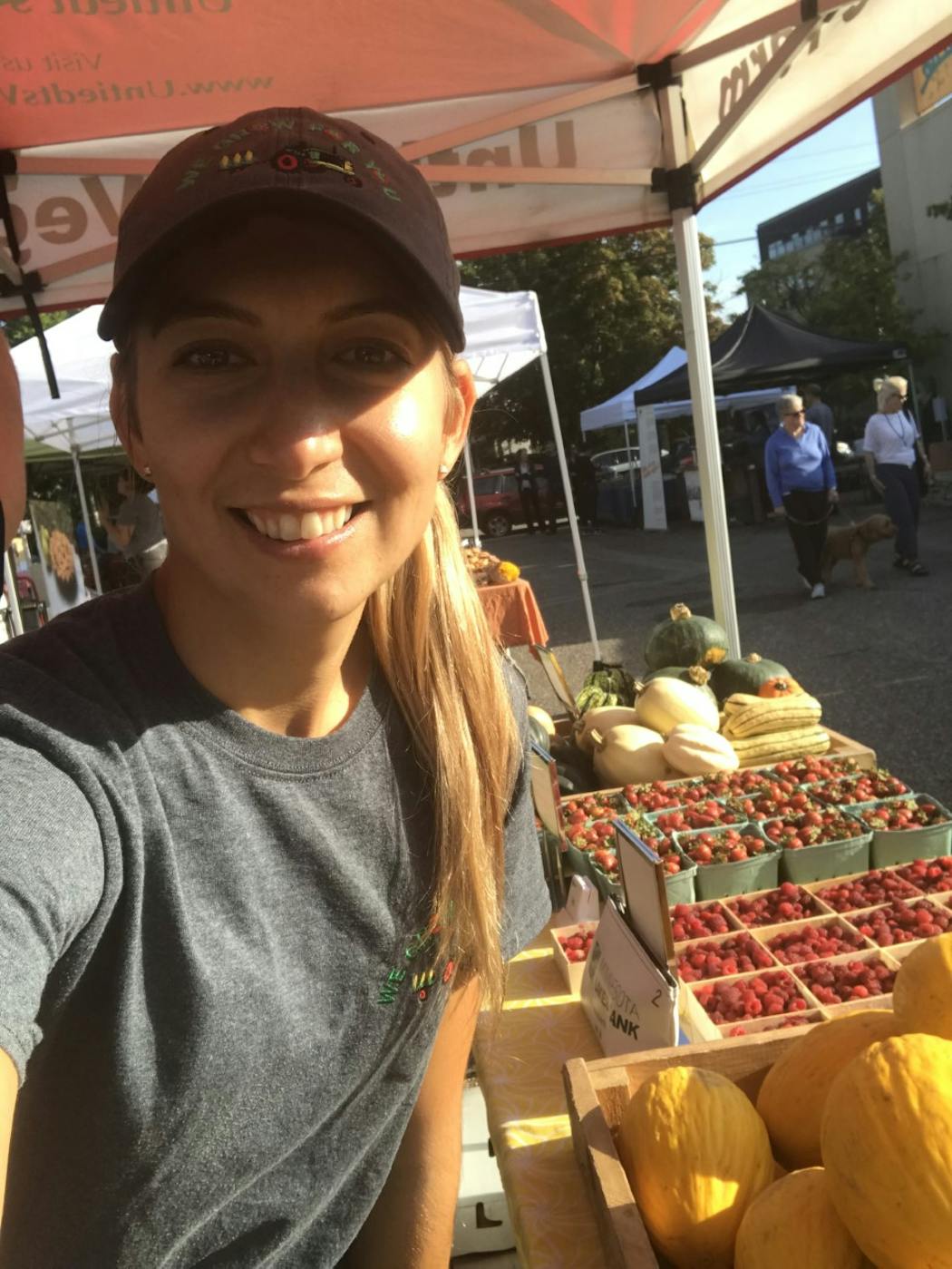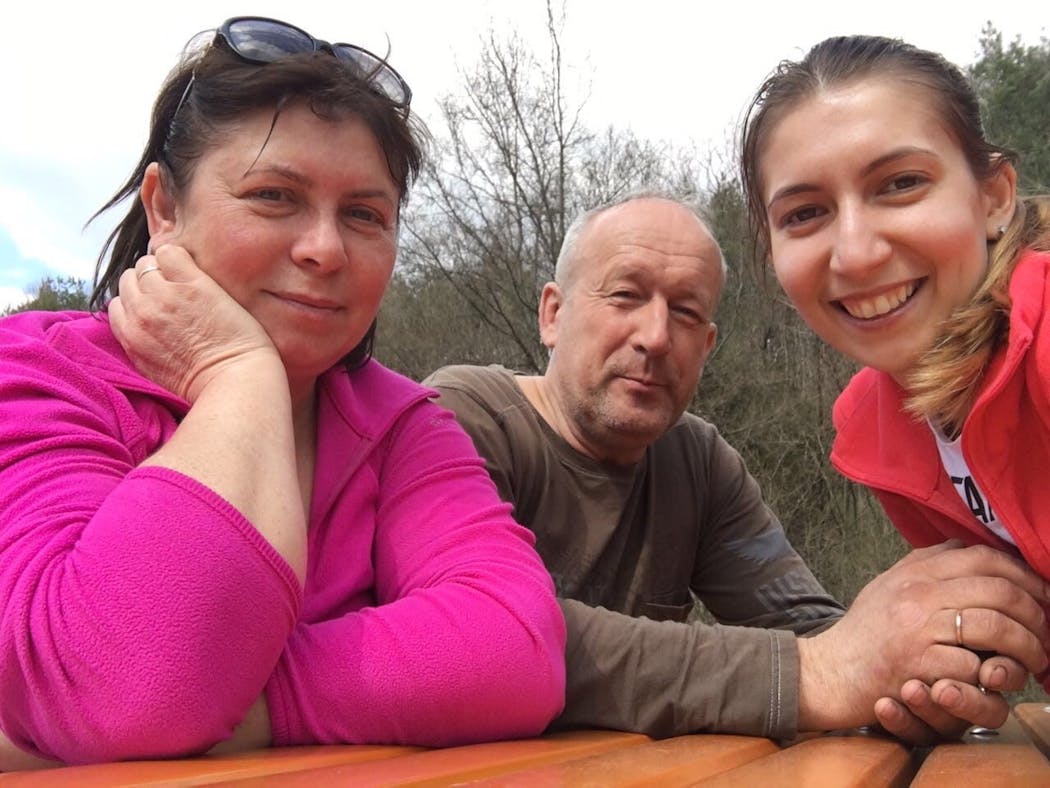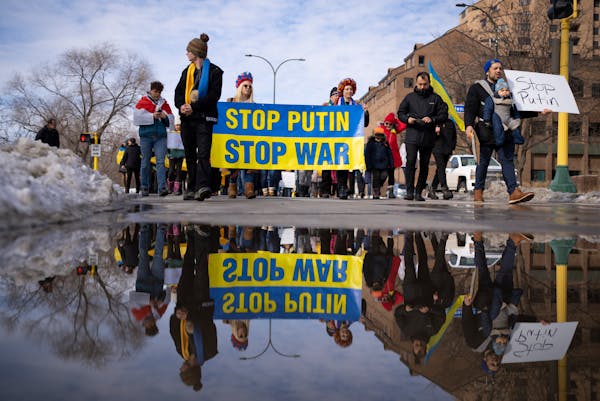Mariana Pykivska has traveled from her home in Ukraine to work on a Minnesota farm for over a decade now, spending April through October helping grow, harvest and sell flowers and produce. This year she decided to come a little early, arriving on Feb. 10.
Two weeks later, she awoke to learn that Russian troops had invaded her country.
"I was terrified; your brain can't believe this is actually what's going on," Pykivska said Saturday.
One of three Ukrainian citizens currently working at Untiedt's Vegetable Farm near Waverly, Pykivska planned to return home in November when her visa would have expired. That's up in the air now, but an order last week by the Biden Administration extending nonimmigrant visas to 18 months for any Ukrainians in the country before March 1 means she has options depending what happens back home.
"From one side, I am happy to be out of the invasion and not hearing the missiles and bombs," said Pykivska, 34. "I know my family is more calm knowing I am safe. [But] watching the news, knowing that my family can be in big danger is very stressful."
Pykivska's parents live in Vinnytsia, a city of about 370,000 in west central Ukraine. So far, she said, it has been undisturbed. First thing every morning, she said, she and her fellow Ukrainians "call our parents, hoping to hear their voices. You can hear by their tone of voice that things are worse or things are OK."
The State Department issued nearly 30,000 nonimmigrant visas to Ukrainians in 2020, according to its most recent data. That includes tourists, students and people like Pykivska who work temporarily on farms.
"It's very important that people be allowed to keep working to help [the Ukrainians], but also to help our own economy — Minnesota has a shortage of workers, especially in the agriculture field and tourism," said Sen. Amy Klobuchar, who was among a bipartisan group of 40 legislators who wrote to Biden on Monday requesting Ukrainians be granted Temporary Protected Status.
Untiedt's, a family farm operated by Jerry and Sue Untiedt, ordinarily hires 18 temporary workers from Ukraine each year, along with about 80 from Mexico, to help grow and sell flowers and produce in roadside stands, grocery stores and farmers markets (they also supply the sweet corn for the Minnesota State Fair's beloved corn roast). But when Russia invaded, the Ukrainian government closed its airspace to commercial flights, and most of Pykivska's potential co-workers were stuck.
Men aren't being allowed to leave Ukraine. Among Untiedt's workers, three women, one with a baby, were able to get out — leaving husbands and relatives behind, and they are now in a neighboring country applying for a passport for the infant. The Untiedts are working to secure visas for the group.
"This is all very fluid, and we will continue working with them every step of the way," the family said in an Instagram post.
Although most of Untiedt's employees still in Ukraine have made their way to safer areas, two are in a harder hit region and have not been able to relocate, the post said.
"Their safety is our number one concern at this time."
The Untiedts have told Pykivska they'll keep their workers employed if they need to extend their stay in this country.
Planting flowers, watching war
Pykivska is an only child whose parents — "gardeners in their souls," she said — raise produce, chickens, ducks and quail. In quieter times, she said, her father worked driving a truck and her mother selling cosmetics. Upon graduating from a Ukrainian agricultural university in 2009 with a bachelor's degree in agronomy and landscaping, Pykivska entered a program allowing her to work in other countries. She chose the United States.
"Working for Untiedt, working in Minnesota, allows me to afford expensive things like an apartment, like a vehicle," she said.
She sends most of her earnings home to her parents.
"They gave me the education and supported my choice to go overseas, so I'm just returning back," she said.
Now, as Pykivska transplants flowers into pots and hanging baskets at Untiedt's, she watches the horrors happening at home: brutal air strikes hitting civilians and children, the fire at Europe's largest nuclear plant, a million refugees fleeing Ukraine.
"I am lucky, I am blessed, I am thankful to the universe and dear God for [being here]," she said. "Talking about this from here I don't hear tanks, I don't hear bombs."
But as the battle unfolds between Ukrainian President Volodymyr Zelensky — "his spirit is so contagious that people who were not on his side before like him now," she said — and Russian President Vladimir Putin, Pykivska naturally wonders what the future holds.
"We don't know what to expect and how long this is going to last," she said, "and if we'll have to go back to a more destroyed country than it is right now."

'Safe recovery sites' would offer syringes, naloxone and more to people using drugs. The plan could be in peril.
New Minnesota GOP leaders seek peace with party's anti-establishment wing

Who is Republican Lisa Demuth, Minnesota's first House speaker of color?




